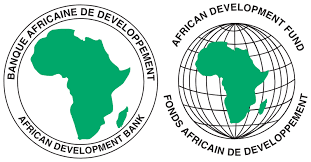APA – Cotonou (Benin) – The Canada-African Development Bank Climate Fund (CACF) will support the development of climate change adaptation measures and best practices in port operations in Benin.
Mitigating the impending risks of climate change associated with rising temperatures, sea levels and droughts is the goal of the Canada-African Development Bank Climate Fund (CACF), which is providing $36.3 million in financing.
“The amount, in the form of concessional loans to private sector companies, includes $18.3 million approved for the rehabilitation and expansion of the autonomous port of Cotonou, Benin, and another $18 million to support the construction of three seawater desalination plants as part of the green investment,” said a statement to APA.
In Morocco, CACF plans to produce and sell 105 million cubic meters of drinking water to approximately 1.5 million people in and around the cities of Safi and El Jadida on the country’s Atlantic coast.
“This comes at a time when Morocco is facing extreme water scarcity and is ranked 27th in the world by the World Resource Institute among the countries most at risk of chronic water scarcity. Women and girls will benefit from better time management and improved health. The Bank is co-financing the project with $150 million,” the source said.
The CACF, a joint initiative of the African Development Bank and Canada, aims to provide concessional loans for eligible climate change projects in Africa. To date, it has approved $20.4 million for two other public sector projects related to the issue.
“The first is a $5.4 million concessional loan to expand and strengthen agricultural, forestry and pastoral production and value chains in Senegal, while disseminating innovative good adaptation practices to project beneficiaries. The second is a $15 million loan to Nigeria to support socio-economic development and poverty reduction in the cities of Umuahia and Aba through the construction of climate-resilient urban infrastructure systems,” the statement said.
“As we witness the more severe and frequent impacts of climate change around the world, and particularly on the African continent, it is increasingly important that we identify and address the adaptation needs of the most vulnerable people and infrastructure,” said Gareth Phillips, Director of AfDB’s Climate and Environment Finance Department.
Convinced that the CACF is “an effective tool for delivering climate adaptation benefits at scale,” Mr. Phillips hoped that support for the fight against climate change in Africa would continue thanks to the invaluable support of the government of Canada.
ID/ac/lb/as/APA


